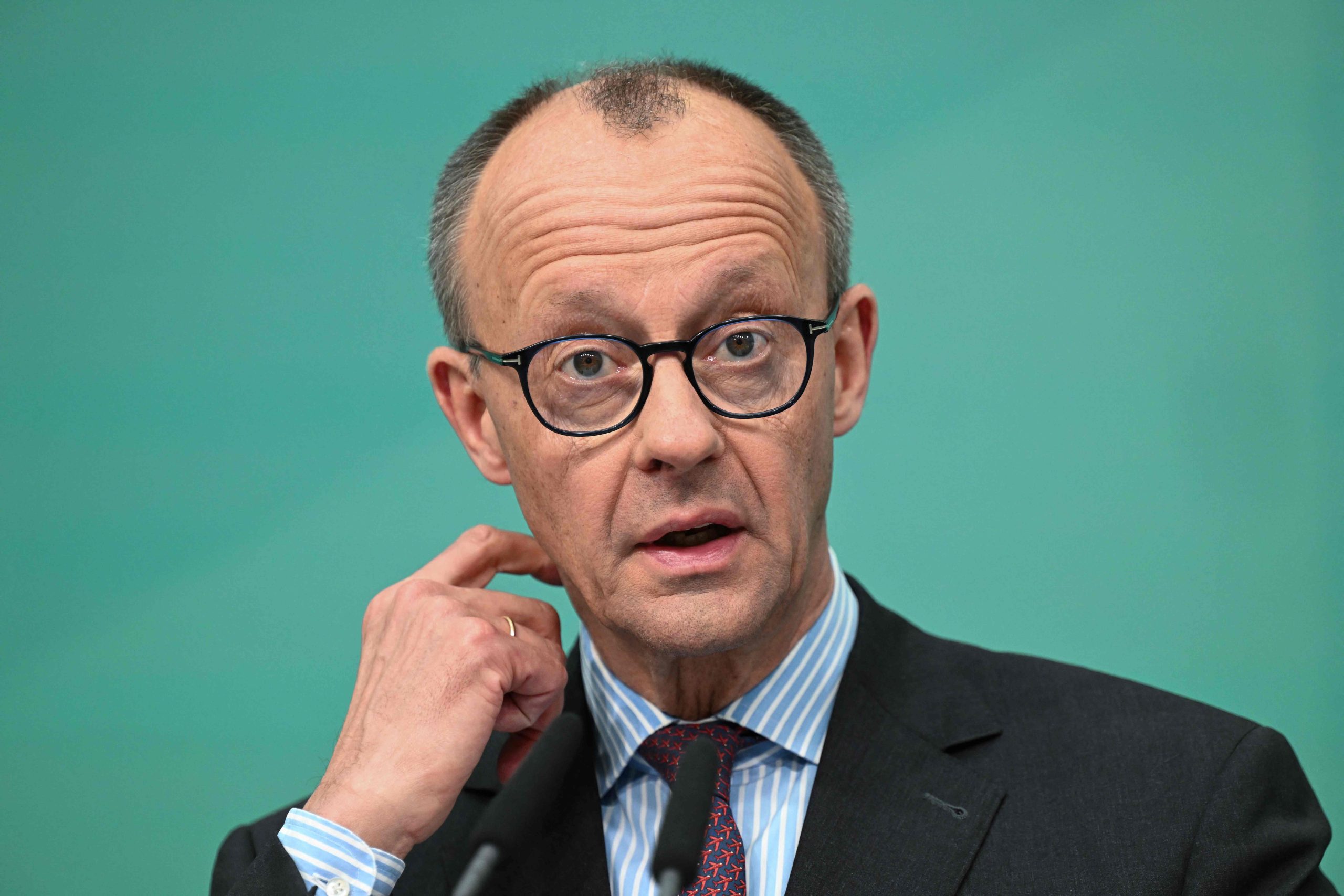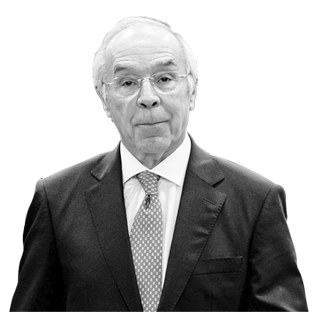Friedrich Merz. The New Chancellor

Friedrich Merz will be the next German chancellor. CDU leader, a Christian Democratic coalition, won Sunday's early elections and will be Olaf Scholz's successor at Bundeskanzleram, the Chancellor's official residence in Berlin. The results, which left him away from an absolute majority, will lead Merz to seek support that facilitates governance and, it seems, will do so with the SPD, creating a central bloc government after categorically denied an agreement with the alternative to Germany (AFD), a party set as far right. But what do we know about the new chancellor?
Born in the North Rhine Region, more precisely in the city of Brilon, on November 11, 1955, Friedrich Merz is created in a family environment with a tradition in legal practice, which would somehow influence its course. After completing secondary education and military service in the then German Federal Republic, Merz embarked on the academic journey entering the 21 -year -old law course. First did so in the capital, Bona, and then moved to Marburg.
In 1981, Merz contracts marriage with a lawmaker, Charlotte Grass, with whom he is still married. From the relationship resulted in three children: Carola, Constanze and Phillippe.
Political route
Young Merz was not oblivious to political reality, which was natural in Germany that was still wounded from World War II. Still in 1972, at the age of 17, he enlisted at CDU at the date led by Rainer Barzel. The following year would arrive the iconic Helmut Kohl to the highest position of the party.
In 1985, after performing the second law of law, Merz, then 30 years old, occupied the role of judge at the Saarbrücken District Court, and later reached the position of internal lawyer at the Association of German Chemical Industry. But it is in 1989, on the eve of the fall of the Berlin Wall, that Friedrich Merz gains his first relief position in the political system, representing Western Germany in the European Parliament, integrating the economic and monetary committee.
From the 1990s, Merz was a constant member at Bundestag, the German Parliament. Since the 1994 elections, the first year that ran for legislatures through the Hochsauerlandkreis region to the 2005 electoral act, Friedrich Merz has always won the absolute majority of the mandate by the region. During this decade in the German legislature, and according to its biographical note present in the website from the Konrad Adenauer Foundation, Merz «He was a member of the influential Finance Commission and, in 1996, head of the CDU/CSU Group in the same commission». «In this quality»you can read yet, « Merz participated in the elaboration of the » Principles of Petersberg « in terms of fiscal policy, with which the government coalition of Helmut Kohl tried lately and in vain to recover the initiative in the ongoing debate during the decade about the lack of attractiveness of Germany as a place of implementation of companies».
The importance of culture
It is following a scandal of illegal donations, who saw then CDU parliamentary leader Wolfgang Schäuble, abandoning the position, which Friedrich Merz reaches one of the main posts within the CDU. Thus, he began to share responsibilities within the party with the newly elected national leader Angela Merkel.
And if today the cultural battle, as well as the issue of unregulated immigration marks the order of the day, in a conjuncture marked by the growth of parties that are committed to overcoming it, Merz has approached these issues so pressing for over two decades. The new German Chancellor «Leaded the battle on cultural hegemony against the coalition between the SPD and the green and its media soldiers»says the biographical note already mentioned. « Alongside conservative positions on bioethics and the analysis of the militant past of the ministers of green Joschka Fischer and Jürgen Trittin, he was distinguished in lit debates on immigration, integration, and right-wing extremism. ». «In October 2000»continues the Konrad Adenauer Foundation, «Merz stated that immigrants should declare their commitment to Grundgesetz's liberal value system (The German Constitution). Its use of the expression “Deutsche Leitkultur” (German guiding culture) « A concept that borrowed from political scientist Bassam Tibi, » he was controversial. Although, essentially, he was just drawing attention to the need for an unbeaten loyalty to the German Constitution as a minimal consensus for the democratic identity of the Federal Republic and for the successful integration of immigrants, the choice of terminology caused a highly emotional controversy.. 25 Years Posted, the same theme continues to be debated, especially after the new immigration policies carried out by Chancellor Merkel just over a decade.
It was also for his initiative, together with former President Roman Herzog, that the CDU carried out an ambitious reformist program, leaving the shadow of the SPD and releasing the Christian Democratic Coalition from the crutch situation. Herzog drew the structural reforms necessary for the Social Security system and Merz was in charge of fiscal policy. Both were widely accepted by the party at the 2003 National Convention in Leipzig, where Merz «It was the star of the conference».
Return
During Merkel's lead, Merz was on the sidelines. «For ten years»says the foundation that carries the name of the first Chancellor of the German Federal Republic, «He was president of the well-known Atlantik-Brücke Association. In 2010-11, he was appointed to supervise the sale-unsuccessfully-from the scandalous Westdeutsche Landesbank. In 2017, he became chairman of the Flughafen Köln/Bonn GMBH Airport Operator Supervision Council. In early 2018, Minister Armin Laschet appointed him Commissioner for Brexit in the new state government of Norte-Restephalia Rhine. From 2016 to 2020, Merz solidified his reputation as an ideological bug of the political left by serving as president of the Blackrock Supervision Council Asset Management Deutschland Ag, the German branch of the world's largest asset management company ».
At the end of the Merkel era, when the chancellor announced its removal from the party leadership in 2018-naturally not competing in the legislatures scheduled for 2021-Merz applied and narrowly lost his appointment to Annegret Kramp-Karrenbauer, former secretary-general. But two years later, Kramp-Karrenbauer decided not to apply for elections and Merz comes again, but falls again, this time against Armin Laschet.
Following the defeat of the CDU in the 2021 legislatures, Merz will run again for the party's highest position and finally succeed. And now, after three and a half years of a left -wing coalition government that imploded in November last year, Friedrich Merz reaches the German executive leadership. The balances will not be easy and a central block government is expected with the SPD, as the one has already announced. The Germanic population clearly voted for a change of course after years of stagnation – and even recession – at a conjuncture where Europe is increasingly on the sidelines and depends on its main engine, Germany, to rise. It remains to be seen if Merz will be up to the big challenge ahead.








